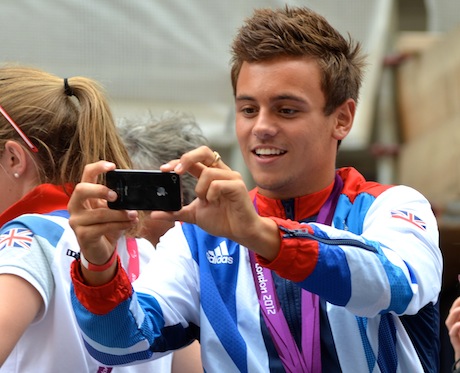Referee! Sport tackles Social Media
The news that footballer Marvin Sordell has sought treatment for Twitter addiction has kickstarted a new debate about sport and social media.
Plenty of ink has been spilled, with The Guardian’s Barney Ronay asking why 140-characters holds such a fatal attraction.
One thing is certain: it’s a mass affliction. In a minority of cases, such as Marvin Sordell’s, additional factors are likely to be in play, separating the “normal” obsession the rest of us are avidly and cheerfully pursuing.
But apart from the few cases in which message management requires clinical rather than PR advice, there is a wider tension within football. They’re happy to demonise social media as long as they can monetise it too.
One can imagine more managers declaring their players “addicted” and confiscating their smartphones, as Bolton already have.
Alex Ferguson proclaimed Twitter “a waste of time” back in 2011, but a prohibition, at any club, is unlikely.
Star players employ sophisticated teams of advisers, marketers and strategists aware of a pro footballer’s lifespan. In this context, social media is too valuable to ignore.
Other sports aren’t immune. Diver Tom Daley scored the highest growth in Twitter followers over the Olympics, enjoying a massive boost to his profile, but attracting criticism for not ‘taking a Twitter break’ during the Games.
His current reality show Splash! has been divebombed by those who argue “you can guarantee the next Chinese diving superstar will not have such distractions from training.”
For the managers, trainers and officials willing our top sportspeople to win, it’s not technology that is the threat, but anything that divides athletes’ attention and energy from the podium.
Yet when Daley’s mum fought back she gained a lot of celebrity support, reflecting a simple fact: we cannot reasonably prevent our sportspeople from expressing themselves.
Nor can we stand in the way of them pursuing opportunities and projects likely to secure them longevity beyond the mayfly lifespan of top-level competitors.
Would Tom Daley have scored an ITV commission without Twitter?
Impossible to say, but the potential audience would be harder to forecast without citing his 2.1 million followers; his personal momentum harder to trace and demonstrate without the cheap and easy analytical tools that Twitter and its fellows have brought into play.
Photo (cc) erase



